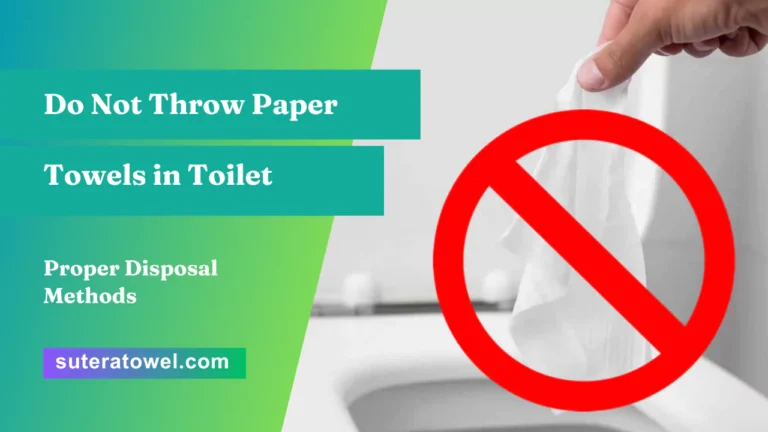Throwing paper towels in the toilet is not recommended due to potential plumbing issues. Paper towels should not be thrown in the toilet as they can cause plumbing problems.
Flushing paper towels down the toilet can lead to clogged pipes and blockages, which may require costly repairs. The absorbent nature of paper towels also makes them less likely to break down quickly in water, unlike toilet paper designed specifically for flushing.
Additionally, paper towels can accumulate and combine with other debris in the sewer system, potentially causing further blockages and damage. It is important to dispose of paper towels in the appropriate waste bin to maintain a properly functioning plumbing system and prevent unnecessary complications.
- 1 The Costly Consequences Of Throwing Paper Towels In The Toilet
- 2 Understanding The Structure Of Your Plumbing System
- 3 Proper Disposal Methods For Paper Towels And Alternative Options
- 4 Educating Your Household: Tips For Avoiding Paper Towel Mishaps
- 5 Additional Steps To Protect Your Pipes And Avoid Costly Repairs
- 6 Frequently Asked Questions Of Do Not Throw Paper Towels In Toilet
- 7 Conclusion
The Costly Consequences Of Throwing Paper Towels In The Toilet
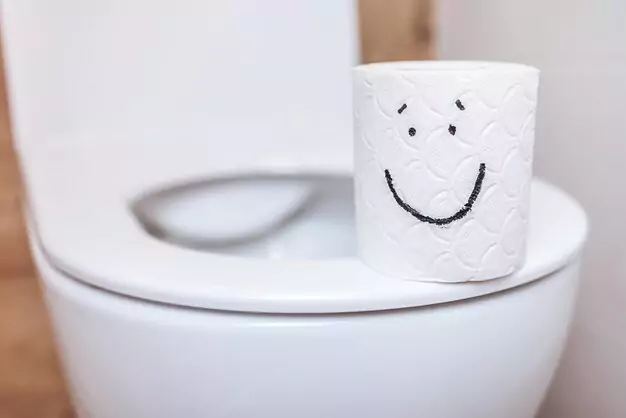
Thoroughly consider the expensive repercussions of disposing of paper towels in the toilet. This harmful practice can lead to costly plumbing issues, clogged pipes, and potential damage to the sewage system. It’s crucial to dispose of paper towels properly in the designated waste bins to avoid these consequences.
Paper Towels: A Common Culprit In Plumbing Disasters
Plumbing issues are an annoyance that no homeowner wants to deal with. Clogged pipes, overflowing toilets, and costly repairs can disrupt your daily life and drain your bank account. Surprisingly, one common cause of such plumbing disasters is the seemingly harmless paper towel.
Yes, that’s right – throwing paper towels in the toilet can have costly consequences that you want to avoid. In this section, we will explore the impact of paper towels on your pipes and why you should never flush them.
Let’s dive in!
The Impact Of Paper Towels On Your Pipes
When it comes to proper waste disposal, the only items that should be flushed down the toilet are human waste and toilet paper. Unlike toilet paper, paper towels are designed to be more absorbent and durable, making them convenient for cleaning up spills and messes.
However, their strength and absorbency also make them a major threat to your plumbing system. Here’s how paper towels can wreak havoc on your pipes:
- Paper towels are not designed to disintegrate quickly like toilet paper. They can stay intact and become easily tangled in your pipes, causing blockages and clogs.
- The durability of paper towels means they can accumulate in your pipes over time, creating a stubborn obstruction that prevents the smooth flow of wastewater.
- Unlike toilet paper, which is specifically designed to break down in water, paper towels can retain their shape and size even when submerged. This makes them less likely to dissolve and more likely to cause backups in your plumbing system.
Why You Should Never Flush Paper Towels
Flushing paper towels may seem like a convenient solution for disposing of them, especially when you’re cleaning up a messy situation. However, doing so can lead to costly consequences that you want to avoid. Here are the reasons why you should never flush paper towels down the toilet:
- Flushing paper towels can cause blockages in your pipes, leading to wastewater backups and potential flooding in your home.
- The presence of paper towels in your plumbing system can create a breeding ground for bacteria, resulting in foul odors and unsanitary conditions.
- Paper towel clogs require professional intervention and can be challenging to remove, resulting in expensive plumber services and repairs.
The High Costs Of Repairs Caused By Paper Towel Clogs
Dealing with a paper towel-related plumbing disaster can come with a hefty price tag. Here are the high costs you may have to bear when paper towels wreak havoc on your pipes:
- Emergency plumber services: A paper towel clog may require immediate attention from a professional plumber, which often comes with emergency service fees.
- Pipe repairs or replacements: Severe clogs caused by paper towels may damage your pipes, requiring extensive repairs or even replacement in some cases.
- Water damage restoration: If a paper towel clog leads to flooding or water damage in your home, you’ll likely need professional assistance to restore your property and prevent further issues.
- Loss of personal items: Valuables and personal items may be damaged or destroyed due to water damage caused by a paper towel clog, resulting in additional costs.
Avoid the temptation to throw paper towels in the toilet, no matter how convenient it may seem at the moment. The costly consequences of doing so can disrupt your daily life, damage your plumbing system, and drain your finances. Dispose of paper towels properly in designated bins or trash receptacles to avoid any plumbing disasters.
Understanding The Structure Of Your Plumbing System
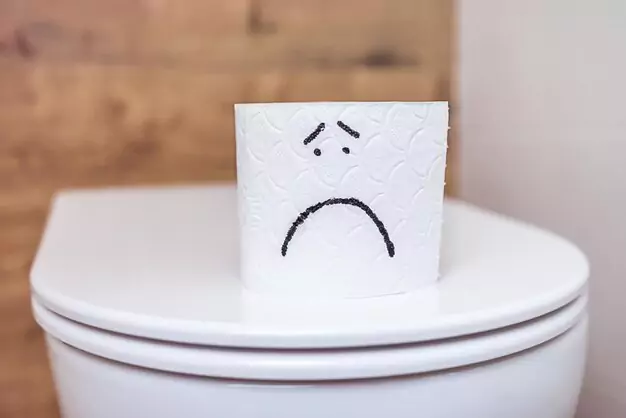
Understanding the structure of your plumbing system is essential to proper maintenance. Avoid throwing paper towels in the toilet as they can clog pipes and cause costly plumbing problems.
A Brief Overview Of Your Residential Plumbing
Your home’s plumbing system is like a complex network of pipes, drains, and sewers that work together to ensure the smooth flow of water and waste. Understanding the structure and functioning of this system is crucial for maintaining its efficiency and avoiding unnecessary blockages.
In this section, we will delve into the role of pipes, drains, and sewers in your home and how paper towels can cause havoc if disposed of incorrectly. So, let’s dive right in!
The Role Of Pipes, Drains, And Sewers In Your Home
- Pipes: These are the essential components that transport water throughout your home. They deliver fresh water from the main supply to various fixtures like sinks, toilets, and showers. Pipes also carry wastewater away, ensuring proper drainage.
- Drains: Drains serve as exit points for used water and waste. They are designed to allow water to flow smoothly from fixtures into the pipes, preventing any clogs or backups. However, certain materials should never be disposed of through drains, including paper towels.
- Sewers: Once wastewater leaves your home through drains, it enters the sewer system. Sewers are underground pipelines that transport all the wastewater to treatment plants where it is cleansed before being released back into the environment. Proper waste disposal in your home is vital to prevent damage to the sewer system.
How Paper Towels Can Cause Blockages In Your Plumbing
While it may seem convenient to flush paper towels down the toilet or dispose of them in drains, this habit can lead to serious plumbing problems. Paper towels have unique qualities that make them resistant to breaking down and dissolving like toilet paper.
Here’s why they can wreak havoc:
- Absorbency: Paper towels are designed to be highly absorbent, making them resistant to rapid disintegration when soaked in water.
- Thickness: Unlike toilet paper, which is specifically manufactured to disintegrate quickly, paper towels are thicker and more durable. As a result, they are more likely to cause blockages in pipes.
- Expandability: When paper towels become saturated with water, they tend to expand. This expansion can further contribute to clogs and blockages.
The Impact Of Paper Towels On Sewer Systems
Improper disposal of paper towels can have severe consequences not only for your home’s plumbing system but also for the larger sewer system. Here’s how paper towels can impact sewer systems:
- Clogs and Blockages: Paper towels do not break down like toilet paper, leading to clogs in your home’s pipes. These clogs can eventually disrupt the flow of the sewer system, causing backups and overflows.
- Increased Maintenance Costs: The presence of paper towels in sewer systems increases the need for maintenance and repairs. The cost of removing blockages and restoring the system’s functionality falls on the local sanitation authorities, ultimately affecting taxpayers.
- Environmental Impact: When paper towels accumulate in sewer systems, they can have detrimental effects on the environment. Blockages can lead to untreated wastewater being released into rivers, lakes, and oceans, polluting these natural water bodies.
To maintain a healthy plumbing system and prevent unnecessary damage to the sewer system, it is crucial to refrain from flushing paper towels down the toilet or disposing of them in drains. By adopting responsible waste disposal practices, you can contribute to the smooth functioning of your plumbing system and help preserve the environment.
Proper Disposal Methods For Paper Towels And Alternative Options
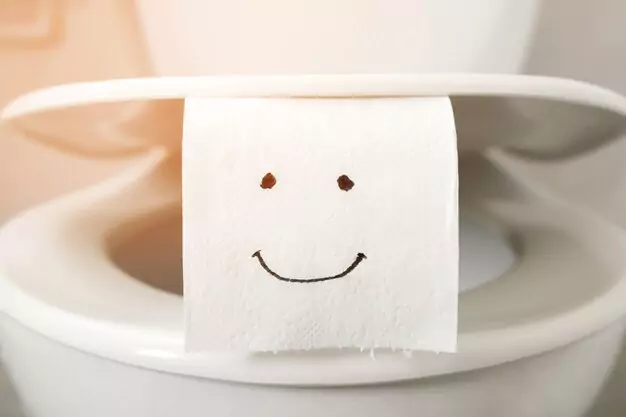
Proper disposal methods for paper towels are essential to avoid clogging toilets. Instead of throwing them in the toilet, consider using alternative options such as composting or placing them in a designated trash bin to help protect your plumbing system and the environment.
Paper towels are a common item found in households and may offer convenience, but they can cause significant problems if not disposed of properly. Flushing paper towels down the toilet, for instance, can lead to clogged pipes and sewer backups.
To help you understand the importance of responsible disposal and explore environmentally friendly alternatives, we have outlined some key information below.
Simple Ways To Dispose Of Paper Towels Responsibly
When it comes to getting rid of paper towels, it’s essential to follow proper disposal methods. Here are some simple strategies to help you dispose of paper towels responsibly:
- Trash bin: The most straightforward approach is to throw used paper towels into a trash bin. Look for a garbage can or bin nearby, and simply toss them in.
- Biodegradable bags: If you prefer a more eco-friendly approach, you can use biodegradable bags to dispose of your paper towels. These bags are designed to break down naturally over time, reducing their impact on the environment.
- Composting: If you have a compost bin or pile, you can add paper towels to the mix. However, note that only paper towels made from natural fibers, such as unbleached or unprinted paper towels, are suitable for composting.
Eco-Friendly Options For Paper Towel Usage
While paper towels offer convenience, their disposable nature can lead to excessive waste. By considering more environmentally friendly options, you can reduce your ecological footprint. Here are a few eco-friendly alternatives for paper towel usage:
- Cloth towels: Instead of reaching for a paper towel to clean up spills or wipe surfaces use reusable cloth towels. These towels can be washed and reused, making them a more sustainable option.
- Microfiber cleaning cloths: Microfiber cloths are highly effective at cleaning various surfaces without the need for paper towels. They can be easily washed and reused multiple times, reducing waste.
- Bamboo paper towels: If you prefer to stick with traditional paper towels, consider opting for bamboo paper towels. Bamboo is a renewable resource that grows quickly, making it a more sustainable choice.
How Disposable Cloths Can Be A Safer Alternative
Disposable cleaning cloths are commonly used for cleaning tasks, but they come with their own set of concerns. Here’s why opting for reusable cleaning cloths can be a safer alternative:
- Chemical exposure: Disposable cleaning cloths are often pre-moistened with cleaning solutions that may contain harsh chemicals. By using reusable cloths, you have control over the cleaning products you use, minimizing exposure to potentially harmful substances.
- Environmental impact: Disposing of disposable cleaning cloths adds to the growing waste problem. Reusable cloths, on the other hand, can be washed and reused numerous times, reducing the amount of waste generated.
- Cost-effective: While disposable cleaning cloths may seem convenient, they can add up in terms of cost. By using reusable clothes, you can save money in the long run and contribute to a more sustainable household.
The Benefits Of Using Reusable Cleaning Cloths
Using reusable cleaning cloths offers numerous benefits for both the environment and your wallet. Here are some advantages to consider:
- Reduced waste: By using reusable cleaning cloths, you can significantly reduce the amount of waste sent to landfills or incinerators. This helps protect the environment and conserves valuable resources.
- Cost savings: Investing in a set of reusable cleaning cloths can save you money in the long term. Instead of repeatedly purchasing disposable options, you can wash and reuse the same clothes, lowering your cleaning expenses.
- Versatility: Reusable cleaning cloths can be used for various tasks, from wiping countertops and floors to dusting surfaces. Their versatility makes them a valuable tool for different cleaning needs.
By implementing proper disposal methods for paper towels and exploring alternative options like reusable clothes, you can play your part in reducing waste and promoting a more eco-friendly lifestyle.
Educating Your Household: Tips For Avoiding Paper Towel Mishaps
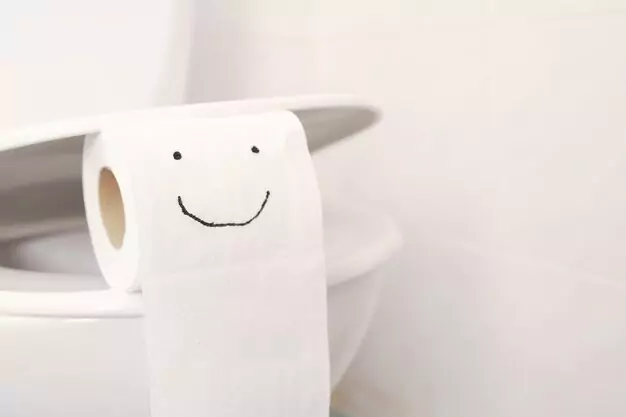
Learn how to avoid paper towel mishaps in your household by following these simple tips. Don’t make the common mistake of throwing paper towels in the toilet – find out why and discover alternative options to keep your pipes clog-free.
Creating Awareness: Teach Your Family Members About The Issue
- Discuss the potential hazards: Start by explaining the negative impact of throwing paper towels in toilets. Mention how they can cause clogs, blockages, and even damage the plumbing system.
- Offer alternatives: Educate your family members about the alternatives to using paper towels for cleaning and spills. Mention reusable microfiber cloths, kitchen towels, or even old t-shirts as effective alternatives.
- Emphasize the importance of proper disposal: Teach them that paper towels should always be disposed of in the trash bin and never flushed down the toilet.
- Explain the environmental impact: Discuss how paper towels contribute to waste and pollution, stressing the importance of reducing their usage and properly disposing of them.
Providing Alternative Solutions For Small Spills And Cleanups
- Keep a dedicated cleaning cloth nearby: Place a designated cloth or towel in an easily accessible location for quick cleanups. This eliminates the need for paper towels and encourages reusable options.
- Use sponge or scrub brush: In situations where a cloth may not be sufficient, use a sponge or scrub brush along with a suitable cleaning solution to tackle small spills and messes.
- Utilize wet wipes or DIY reusable wipes: Wet wipes can be used as a convenient alternative to paper towels for quick cleanups. Alternatively, you can create your reusable wipes by cutting up old t-shirts and soaking them in a gentle cleaning solution.
- Implement a recycling system: Consider having a separate bin for recyclable materials, including paper towels. This encourages eco-friendly habits and helps reduce overall waste.
Encouraging Proper Waste Disposal Habits
- Place visible reminders: Post signs near the toilets and around the house reminding family members not to flush paper towels. These simple reminders can go a long way in preventing accidental flushes.
- Provide waste bins in every room: Ensure that every room in your house has a conveniently located waste bin. This makes it easier for everyone to dispose of paper towels properly.
- Educate on plumbing consequences: Explain the potential consequences of flushing paper towels, such as plumbing issues, costly repairs, and even the need for professional assistance. This can motivate family members to adopt proper waste disposal habits.
- Lead by example: Show your household members how to properly dispose of paper towels by always using the trash bin. Leading by example encourages them to follow suit.
Communicating The Importance Of Keeping Paper Towels Out Of Toilets
- Highlight the impact on the environment: Discuss the negative environmental consequences of flushing paper towels. Mention how they can contribute to pollution and harm marine life.
- Emphasize the cost factor: Explain the potential financial implications of flushing paper towels, including increased water bills and potential plumbing repairs. This highlights the importance of avoiding such expenses.
- Share success stories: Share real-life stories or testimonials of individuals who experienced plumbing issues due to flushing paper towels. These personal accounts can effectively convey the importance of proper waste disposal.
- Encourage open communication: Maintain an open dialogue with your household members about the issue. Encourage them to ask questions and voice any concerns they may have. This helps foster a shared understanding and a commitment to preventing paper towel mishaps.
Additional Steps To Protect Your Pipes And Avoid Costly Repairs
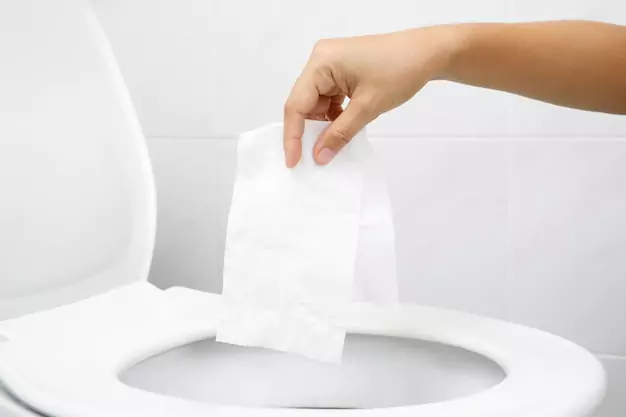
To protect your pipes and prevent costly repairs, it’s crucial to avoid throwing paper towels in the toilet. This simple step can prevent clogs and plumbing issues, saving you time and money in the long run.
Maintaining the proper functioning of your plumbing system is crucial to prevent potential disasters and costly repairs. In addition to being mindful of not throwing paper towels in the toilet, there are several other steps you can take to safeguard your pipes.
By implementing the following practices, you can reduce the risk of clogs and keep your plumbing system running smoothly.
Regular Maintenance: A Key To Preventing Plumbing Disasters
Regular maintenance plays a vital role in preventing plumbing disasters. By incorporating the following habits into your routine, you can ensure the longevity of your pipes and minimize the chances of major plumbing issues:
- Inspecting for leaks: Regularly check your pipes, faucets, and toilet tanks for any signs of leakage. Early detection allows for prompt repairs, preventing more extensive damage.
- Monitoring water pressure: Keep an eye on the water pressure in your house. High water pressure can strain your pipes and lead to leaks or bursts.
- Cleaning faucet aerators: Sediments and debris can accumulate in faucet aerators, affecting water flow. Regularly clean them to maintain optimal water pressure.
Utilizing Drain Screens And Strainers To Catch Unwanted Debris
To prevent unwanted debris from entering your pipes and causing clogs or blockages, consider using drain screens and strainers. These simple yet effective tools can catch hair, food particles, and other debris, preventing them from going down the drain. Here’s how you can make use of drain screens and strainers:
- Kitchen sinks: Place a strainer over the drain to catch food scraps and prevent them from entering the pipes.
- Bathroom sinks and showers: Install drain screens to trap hair and soap residue, reducing the chances of clogs.
- Toilet drains: While flushing paper towels should be avoided altogether, using a drain screen in the toilet can help catch any accidental and small items that may fall in.
How To Deal With Paper Towels Accidentally Flushed Down
If a paper towel is accidentally flushed down the toilet, it’s essential to take immediate action to prevent a potential clog. Here’s what you can do:
- Use a plunger: Start by using a plunger to try and dislodge the paper towel. Apply firm, yet controlled pressure to create suction and help remove the blockage.
- Enlist the help of enzymatic drain cleaners: If the plunger doesn’t resolve the issue, consider using enzymatic drain cleaners. These cleaners break down organic material, making it easier to clear the blockage.
Signs Of A Potential Paper Towel Clog And How To Address It
Detecting a paper towel clog early on can save you from major plumbing headaches down the line. Keep an eye out for the following signs, and take action if you suspect a paper towel clog:
- Slow drains: If you notice that water takes longer than usual to drain or if it backs up in sinks or toilets, it may indicate a potential clog.
- Unpleasant odors: Foul smells emanating from drains can be a sign of a paper towel clog. Address the issue promptly to eliminate the odor.
- Gurgling sounds: Strange sounds coming from the drain can indicate a blockage. If you hear gurgling noises, investigate and take the necessary measures.
Protecting your pipes and avoiding costly repairs goes beyond simply refraining from throwing paper towels in the toilet. By adhering to regular maintenance routines, utilizing drain screens and strainers, addressing accidental paper towel flushes promptly, and being aware of warning signs, you can maintain a healthy plumbing system and avoid unpleasant plumbing mishaps.
Frequently Asked Questions Of Do Not Throw Paper Towels In Toilet
Why You Shouldn’t Put Paper Towels In The Toilet?
Putting paper towels in the toilet is not recommended because they can clog the pipes and cause plumbing issues.
Will Paper Towels Dissolve In Toilet?
No, paper towels do not dissolve in toilets, which can lead to clogs and plumbing issues.
Can I Throw Toilet Paper In The Toilet?
Yes, you can safely dispose of toilet paper in the toilet.
How Do You Deal With Paper Towels In The Toilet?
To deal with paper towels in the toilet, avoid flushing them as they can clog the pipes. Dispose of used paper towels in a trash bin instead.
Conclusion
It is crucial to remember that paper towels should never be thrown in the toilet. This simple act can save you from a lot of trouble in the long run. Paper towels are designed to be absorbent and do not break down like toilet paper.
When flushed, they can cause clogs and blockages in the plumbing system. Not only can this lead to costly repairs, but it can also disrupt the sewage system and harm the environment. The best way to dispose of paper towels is by throwing them in the trash bin.
By following this simple guideline, you can ensure a hassle-free and environmentally friendly plumbing system. So, the next time you reach for a paper towel, remember to dispose of it properly and keep your toilets clog-free.
